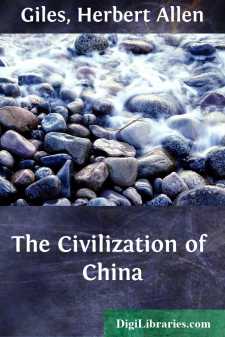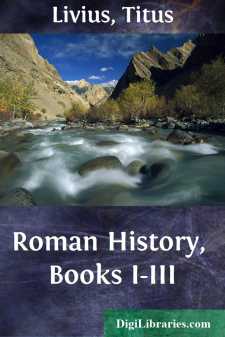History
- Africa 30
- Americas (North Central South West Indies) 50
- Ancient 68
- Asia 58
- Australia & New Zealand 8
- Canada 41
- Caribbean & West Indies 1
- Civilization 20
- Eastern Europe 12
- Europe 310
- Expeditions & Discoveries 60
- General 77
- Historical Geography 1
- Jewish 9
- Latin America 3
- Medieval 8
- Middle East 13
- Military 248
- Revolutionary 8
- Study & Teaching 5
- United States 353
- Western Europe 56
- World 13
History Books
Sort by:
BARON BEYENSPolitical designs of Francis Ferdinand.The Archduke Francis Ferdinand will go down to posterity without having yielded up his secret. Great political designs have been ascribed to him, mainly on the strength of his friendship with William II. What do we really know about him? He was strong-willed and obstinate, very Clerical, very Austrian, disliking the Hungarians to such an extent that he...
more...
CHAPTER I—THE DISCOVERY OF PREHISTORIC EGYPT During the last ten years our conception of the beginnings of Egyptian antiquity has profoundly altered. When Prof. Maspero published the first volume of his great Histoire Ancienne des Peuples des l'Orient Classique, in 1895, Egyptian history, properly so called, still began with the Pyramid-builders, Sne-feru, Khufu, and Khafra (Cheops and...
more...
ENGLISH A COMPOSITE LANGUAGE “A very slight acquaintance with the history of our own language will teach us that the speech of Chaucer’s age is not the speech of Skelton’s, that there is a great difference between the language under Elizabeth and that under Charles the First, between that under Charles the First and Charles the Second, between that under Charles the Second and Queen Anne; that...
more...
CHAPTER I—THE FEUDAL AGE It is a very common thing now-a-days to meet people who are going to "China," which can be reached by the Siberian railway in fourteen or fifteen days. This brings us at once to the question—What is meant by the term China? Taken in its widest sense, the term includes Mongolia, Manchuria, Eastern Turkestan, Tibet, and the Eighteen Provinces, the whole being...
more...
by:
Titus Livius
LIVY'S ROMAN HISTORY BOOK I[1] THE PERIOD OF THE KINGS To begin with, it is generally admitted that, after the taking of Troy, while all the other Trojans were treated with severity, in the case of two, Æneas and Antenor, the Greeks forbore to exercise the full rights of war, both on account of an ancient tie of hospitality, and because they had persistently recommended peace and the restoration...
more...
CHAPTER I SHEPHERDS ON THE BORDER OF THE DESERT Ancient Arabia is the home of that branch of the white race known as the Semitic. Here on the fertile fringes of well-watered land surrounding the great central desert lived the Phœnicians, the Assyrians, the Babylonians, and the Canaanites who, before the Hebrews, inhabited Palestine. So little intermixing of races has there been that the Arabs of...
more...
MAPS TO VOLUME I. Pains have been taken to embody in the maps all topographical information existing up to date. A very considerable amount of valuable triangulation has been executed over portions of South Africa, but no systematic detailed survey has ever been made by any of the South African colonies or states. Maps have, however, been compiled by both Cape Colony and Natal. The former has prepared...
more...
PREFACE It seems eminently fitting and proper in this year, the fiftieth anniversary of the Proclamation of Emancipation that the Negro should give pause and look around him at the things which he has done, those which he might have done, and those which he intends to do. We pause, just at the beginning of another half century, taking stock of past achievements, present conditions, future...
more...
by:
Titus Livius
BOOK XXVII. Cneius Fulvius, proconsul, defeated by Hannibal and slain; the consul, Claudius Marcellus, engages him with better success. Hannibal, raising his camp, retires; Marcellus pursues, and forces him to an engagement. They fight twice; in the first battle, Hannibal gains the advantage; in the second, Marcellus. Tarentum betrayed to Fabius Maximus, the consul. Scipio engages with Hasdrubal, the...
more...
by:
Flavius Josephus
PREFACE 1. Whereas the war which the Jews made with the Romans hath been the greatest of all those, not only that have been in our times, but, in a manner, of those that ever were heard of; both of those wherein cities have fought against cities, or nations against nations; while some men who were not concerned in the affairs themselves have gotten together vain and contradictory stories by hearsay,...
more...











